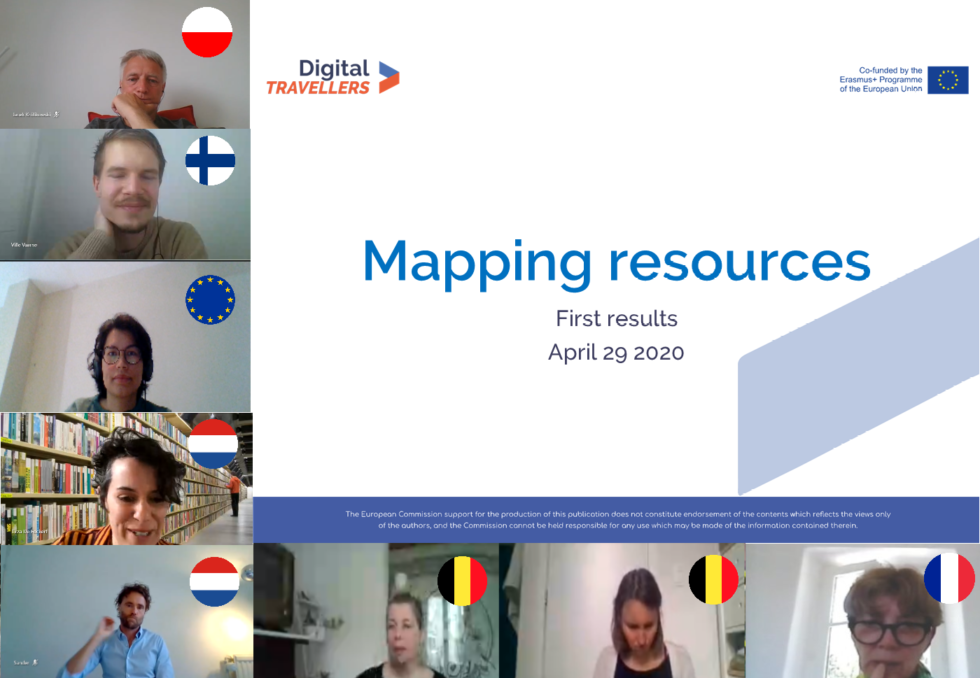Mapping the Digital Travellers journey
13 May 2020
 We have reached the first important milestone in our Digital Travellers journey! Over the past few months, under the leadership of the Dutch organization KB, we have mapped over 250 resources to help digitally excluded groups improve their skills. These resources will form the basis of what at the end of this trip, in October 2021, will become a European database of at least 500 resources for librarians working in the domain of basic digital skills.
We have reached the first important milestone in our Digital Travellers journey! Over the past few months, under the leadership of the Dutch organization KB, we have mapped over 250 resources to help digitally excluded groups improve their skills. These resources will form the basis of what at the end of this trip, in October 2021, will become a European database of at least 500 resources for librarians working in the domain of basic digital skills.
To mark this milestone, and to take off on the next leg of our journey, all six partner organisations were to convene at the KB in Den Haag on 29 April. However, due to travel restrictions across Europe because of the corona pandemic, this summit was moved to a series of online conferencing sessions instead. During this conference, we managed to decide on a few important questions regarding the progress of Digital Travellers in the age of corona.
If anything, the current pandemic sweeping over the world has made even more clear the importance of a European wide project addressing the education of digitally excluded people. European data has shown that almost half of the Europeans (44 %) lacks basic digital skills, whereas in the future 90 % of jobs will require some digital skills. In the past few months, many Europeans have had to work, study, or socialize from home through a laptop, a smartphone, or another digital device. Digital skills, for many, have become key to participating in society. It is crucial that those at risk of digital exclusion acquire the needed skills and knowledge to continue to participate in society.
So what are the next steps we will take with this new reality which has given the project an extra sense of urgency? Now that we have mapped the first set of resources, an important topic to tackle during our digital summit was which target groups every country will focus their pilots on. One goal of the project is to help 4000 Europeans improve their basic digital skills and address at least five different exclusion barriers.
Every partner expressed a strong wish to include elderly people in their pilot phases. FRSI will also incorporate unemployed people in their pilot, as will Bibliothèques Sans Frontières Belgium (BSFB) and the KB. This last partner has also added a third group of people with low literacy, whereas the Finnish Library Association is considering addressing prisoners as well in their pilot programme.
Now that we have defined the target groups, we will start compiling specific toolkits from the resources we have mapped. Our goal is to translate some of the resources from other organisations to create toolkits that reflect a wide selection of European best practices. The next challenge we face will be to see how well the best practices in one country translate into others.
And then, of course, we need to train 80 librarians who can train those digitally excluded groups. Bibliothèque sans Frontières – Belgium is currently working hard to compose a specific two-day training that has both a universally shared component, and one that is specific to every country’s local context. No small challenge, especially now that the training of groups in an offline setting will be difficult for the foreseeable future, again thanks to the corona pandemic. Because of this, we have decided to postpone the training of librarians until September, while creating an online back-up plan, to keep this journey smooth sailing.